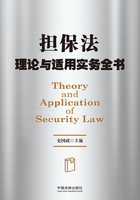Speaking generally, our glory is to follow the better and improvethe inferior, which is susceptible of improvement, as far as this ispossible. And of all human possessions, the soul is by nature mostinclined to avoid the evil, and track out and find the chief good;which when a man has found, he should take up his abode with it duringthe remainder of his life. Wherefore the soul also is second [ornext to God] in honour; and third, as every one will perceive, comesthe honour of the body in natural order. Having determined this, wehave next to consider that there is a natural honour of the body,and that of honours some are true and some are counterfeit. Todecide which are which is the business of the legislator; and he, Isuspect, would intimate that they are as follows:-Honour is not tobe given to the fair body, or to the strong or the swift or thetall, or to the healthy body (although many may think otherwise),any more than to their opposites; but the mean states of all thesehabits are by far the safest and most moderate; for the one extrememakes the soul braggart and insolent, and the other, illiberal andbase; and money, and property, and distinction all go to the sametune. The excess of any of these things is apt to be a source ofhatreds and divisions among states and individuals; and the defectof them is commonly a cause of slavery. And, therefore, I would nothave any one fond of heaping up riches for the sake of his children,in order that he may leave them as rich as possible. For thepossession of great wealth is of no use, either to them or to thestate. The condition of youth which is free from flattery, and atthe same time not in need of the necessaries of life, is the bestand most harmonious of all, being in accord and agreement with ournature, and making life to be most entirely free from sorrow. Letparents, then, bequeath to their children not a heap of riches, butthe spirit of reverence. We, indeed, fancy that they will inheritreverence from us, if we rebuke them when they show a want ofreverence. But this quality is not really imparted to them by thepresent style of admonition, which only tells them that the youngought always to be reverential. A sensible legislator will ratherexhort the elders to reverence the younger, and above all to take heedthat no young man sees or hears one of themselves doing or sayinganything disgraceful; for where old men have no shame, there young menwill most certainly be devoid of reverence. The best way of trainingthe young is to train yourself at the same time; not to admonish them,but to be always carrying out your own admonitions in practice. He whohonours his kindred, and reveres those who share in the same Godsand are of the same blood and family, may fairly expect that theGods who preside over generation will be propitious to him, and willquicken his seed. And he who deems the services which his friendsand acquaintances do for him, greater and more important than theythemselves deem them, and his own favours to them less than theirsto him, will have their good-will in the intercourse of life. Andsurely in his relations to the state and his fellow citizens, he is byfar the best, who rather than the Olympic or any other victory ofpeace or war, desires to win the palm of obedience to the laws ofhis country, and who, of all mankind, is the person reputed to haveobeyed them best through life. In his relations to strangers, a manshould consider that a contract is a most holy thing, and that allconcerns and wrongs of strangers are more directly dependent on theprotection of God, than wrongs done to citizens; for the stranger,having no kindred and friends, is more to be pitied by Gods and men.
Wherefore, also, he who is most able to avenge him is most zealousin his cause; and he who is most able is the genius and the god of thestranger, who follow in the train of Zeus, the god of strangers. Andfor this reason, he who has a spark of caution in him, will do hisbest to pass through life without sinning against the stranger. And ofoffences committed, whether against strangers or fellow-countrymen,that against suppliants is the greatest. For the god who witnessedto the agreement made with the suppliant, becomes in a specialmanner the guardian of the sufferer; and he will certainly notsuffer unavenged.
Thus we have fairly described the manner in which a man is to actabout his parents, and himself, and his own affairs; and in relationto the state, and his friends, and kindred, both in what concernshis own countrymen, and in what concerns the stranger. We will nowconsider what manner of man he must be who would best pass throughlife in respect of those other things which are not matters of law,but of praise and blame only; in which praise and blame educate a man,and make him more tractable and amenable to the laws which are aboutto be imposed.















